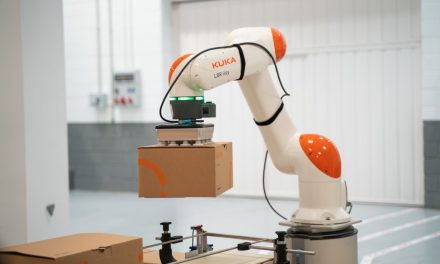Automation has been the subject of a long running debate within the UK with a wide range of views, both positive and negative, expressed from manufacturers across multiple sectors. With the exception of automotive and it’s supply chain, over the years the uptake of robotics and automation in other areas has by comparison been disappointing to say the least. The yearly statistics from BARA (British Automation & Robotics Association) and IFR (international Federation of Robotics) have until now reflected the poor uptake of these technologies by UK manufacturers. However, latest statistics released by BARA recently show a positive change in 2020 and despite the disruption caused by the pandemic, industrial robot sales increased by 7.5% compared to 2019.
Lee Kerswell comments: “These statistics from BARA are very positive, and they also reinforce the increased level of activity Altec has seen over recent months. There definitely seems to be a change in attitude towards the idea of automation and we are seeing this within businesses of all sizes, not just large manufacturers. The combination of effects from the pandemic on how working practices have changed for individuals, together with reduced availability of labour in some sectors and the changing business environment post Brexit, appear to have been the catalysts for increased enquiry levels.”

Not only are more businesses investigating the potential for automation, the types of solutions and levels of automation have become more diverse says Lee Kerswell. “In the past some manufacturers had what could be described as an – All or Nothing – approach. If it was not possible to automate everything, or if the cost was deemed to be too high the whole project would be shelved.
There is now a greater understanding that there are benefits to be had by introducing smaller systems or islands of automation, which could potentially be linked together at a future date. A further benefit of this approach, especially for those new to automation, is that a smaller project is likely to be implemented more quickly and with less technical risk therefore more easily achieving the objectives and payback anticipated at the outset.”
Many automated solutions will encompass multiple technologies, and to those new to automation the idea of dealing with these systems on a day to day basis can initially seem daunting. There is little doubt that “fear” of technology has been an inhibitor to the uptake of robotics and automation in the past, however this is where the role of the system integrator or automation specialist can make a real difference. “Our experience is that once the concept has been fully explained to the customer, supported by 3D layout drawings, they quickly become very comfortable with the idea that what is being proposed is a combination of field proven technologies from world-class suppliers configured as a turnkey solution to meet their specific needs” says Kerswell.
Collaborative robots are also being seen by an increasing number of manufacturers as either a first step into the world of automation or as a way of improving existing operations by removing some of the tedious and low skilled elements of an application from the operator. Furthermore, adopting automation to address current shortages of labour and skills not only allows businesses to improve output and productivity but also upskill existing personnel which in turn helps to boost employee retention levels.
Lee Kerswell concludes: “If the trend we have seen over recent months, towards seeking increased levels of automation, continues throughout 2021 then the UK will definitely be on a path which will address the short-comings of the past and set us on a course for sustainable manufacturing across a wide range of sectors.”


